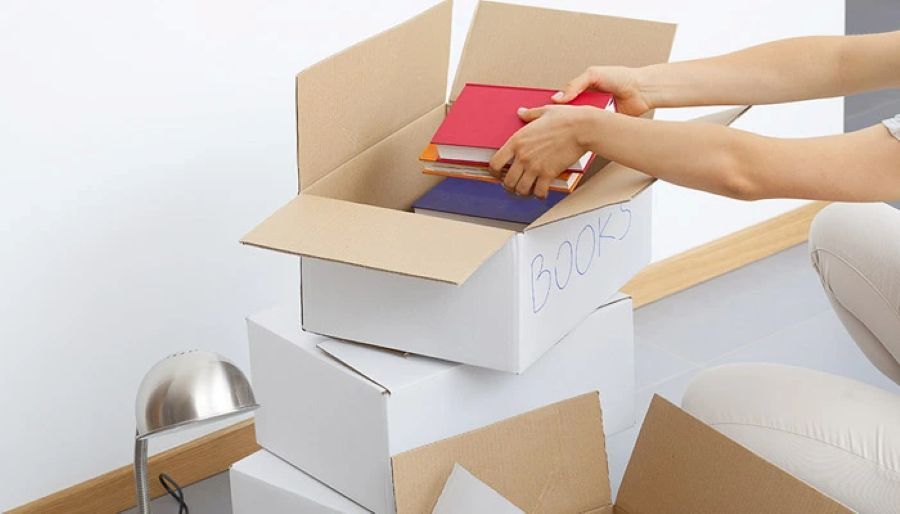Is Moving the Most Stressful Life Event?
Yes, moving house is ranked as the most stressful life event by many recent studies. Research shows that 45% of Americans consider moving more stressful than divorce, having children, or starting a new job. Over half of British adults (57%) also rate moving as their biggest life stressor. This article will explain why moving causes so much stress, how it affects your health, and share simple ways to make your next move easier.
Why Moving Tops the Stress Charts
Moving Beats Divorce and Death in Stress Rankings
Multiple surveys confirm that moving house causes more stress than major life events. A 2020 study found that 64% of people rated their recent move as the most stressful thing they had ever experienced. This puts moving ahead of:
- Getting divorced (44% of people)
- Having a baby (31% of people)
- Starting a new job (28% of people)
- Getting married (33% of people)
British research shows similar results, with 57% of people calling moving house their top life stressor. Women find moving slightly more stressful than men, with 62% of women versus 51% of men rating it as their biggest challenge.
The Holmes-Rahe Scale Shows Moving's Impact
Scientists have studied stress for decades. The famous Holmes-Rahe Stress Scale gives "change in residence" 25 points out of 100. While this might seem low, moving often happens with other stressful events like:
- Divorce (73 points)
- Job loss (47 points)
- Marriage (50 points)
- Retirement (45 points)
When you add these together, your stress score can quickly reach dangerous levels. Scores over 300 points mean an 80% chance of getting sick from stress in the next two years.
What Makes Moving So Stressful
Your Brain Fights Change
Moving is hard because your brain loves routine and familiar places. Nicky Lidbetter from Anxiety UK explains: "Most of us like familiarity, routine and order. When you're moving, you have none of those".
Your home is your safe space. For many people, homes are carefully crafted places of safety and refuge from the outside world. When you move, you lose that security blanket.
Too Many Details to Handle
Moving involves hundreds of small tasks that pile up quickly. You need to:
- Pack every single item you own
- Research and hire movers
- Change your address everywhere
- Set up utilities at your new home
- Find new doctors, schools, and shops
- Handle money stress from unexpected costs
Research shows that packing belongings (48%) and deciding what to keep or throw away (47%) are the most stressful parts of moving.
Money Worries Add Extra Stress
Moving costs more than most people expect. The average American spent $2,050 on their move in 2024, with 78% facing unexpected expenses. In the UK, 58% of people spent more than they budgeted for their move.
These surprise costs include:
- Higher moving truck fees
- Extra packing supplies
- Storage unit rentals
- Utility connection fees
- Time off work
The Waiting Game Creates Anxiety
Almost half of home buyers (46%) had to wait 3-5 months to complete their move. This long waiting period with an uncertain timeline creates ongoing stress. You can't fully relax in your current home because you know you're leaving, but you can't settle into your new home yet either.
How Moving Stress Affects Your Health
Physical Health Problems
Research shows that high stress from major life changes like moving can cause physical illnesses, accidents, and athletic injuries. Common moving-related health issues include:
- Back and neck pain from lifting boxes
- Sleep problems in the new home
- Headaches from stress
- Stomach problems from anxiety
- Getting sick more often
One woman reported getting a painful gum infection that her dentist said was triggered by moving stress.
Mental Health Impact
Studies show that before moving, 42% of people report stress and 41% report anxiety. After moving, stress drops to 19% and anxiety to 18%. However, the weeks leading up to and immediately after a move can trigger:
- Depression
- Anxiety attacks
- Sleep disorders
- Relationship problems
Moving can trigger underlying mental health conditions like anxiety, OCD, and depression.
Sleep Problems in New Homes
Scientists have discovered something called "first night effect" - only half your brain enters deep sleep when you try to rest in a new place. The other half stays alert to watch for danger. This is why you might feel tired for weeks after moving, even if you're getting enough hours of sleep.
Who Finds Moving Most Stressful
Homeowners vs Renters
New Zealand research found that homeowners experience significantly higher stress levels than renters when moving. This makes sense because homeowners have more to lose financially and more complex legal processes to navigate.
Frequent Movers Suffer More
People who move more often are more stressed than those who don't move frequently. The study also found that people with high stress levels are more likely to move house, creating a cycle where stressed people move more and moving creates more stress.
Highly Sensitive People
Highly sensitive people find moving especially difficult because they need more time to adjust to new sights, sounds, and smells. The chaos and sensory overload of moving day can be overwhelming for people who process information more deeply.
Simple Ways to Reduce Moving Stress
Start Planning Early
The key to reducing moving stress is starting the process as early as possible. Give yourself at least 8 weeks to plan if you can. If you have the money, try to overlap your old and new places by a week so you can move at a relaxed pace.
Hire Professional Help
94% of Americans who used a moving company said it "was worth every penny". Professional movers can:
- Pack your items safely
- Handle heavy lifting
- Provide insurance for your belongings
- Save your back from injury
If you can't afford full-service movers, consider hiring help just for the heavy items. Many apps let you hire moving helpers for reasonable prices.
At Last Stop Moving, we understand how stressful moving can be. Our local movers provide transparent pricing and expert packing services to take the worry out of your move.
Declutter Before You Pack
Going through all your stuff and getting rid of things you don't need can reduce the amount you have to move. One study found it takes 182 days for the average person to unpack every box after moving, and some boxes never get unpacked at all. If you can live without something for six months, you probably don't need it.
Take Care of Your Body
Moving is physically demanding. Remember to:
- Lift with your legs, not your back
- Take breaks every hour
- Stay hydrated
- Eat regular meals
- Get enough sleep
Book time off work after your move to unpack and recover from the physical and mental effort.
Set Up Your Bedroom First
Get your bedroom sleep-ready immediately because you'll need rest. Having a comfortable place to sleep helps you handle the stress of unpacking everything else.
If you cook, set up your kitchen next. A home-cooked meal can help you settle into your new space.
Making Your New House Feel Like Home
Create Familiar Smells and Sounds
Bake premade cookie dough to make the house smell cozy and delicious. Clean with your preferred cleaning supplies, and use your favorite soap in the shower until it smells more like home.
Unpack Personal Items Quickly
Clutter and general disarray can make the anxiety of being in a new place worse. Unpack as quickly as you can to add a sense of familiarity to your new home.
Put up pictures and arrange lighting right away. These small touches help your brain recognize the space as "yours."
Explore Your New Area
After a move, resist the urge to hunker down. Go for a walk and explore your new neighborhood. Find your nearest:
- Grocery store
- Coffee shop
- Pharmacy
- Park or walking path
Knowing where things are reduces anxiety about daily tasks.
Be Patient With the Process
The average time to settle into a new home is over two months (74 days), with 11% of people taking more than six months. Don't pressure yourself to feel at home immediately. It's normal to feel unsettled for weeks or even months.
When Moving Becomes Too Much
Signs You Need Extra Help
Some people need more support during a move. Watch for these warning signs:
- Can't sleep for more than a few days
- Panic attacks or severe anxiety
- Can't eat or eating too much
- Thoughts of hurting yourself
- Can't function at work or school
Get Professional Support
If moving stress becomes overwhelming, consider:
- Talking to your doctor
- Seeing a counselor or therapist
- Joining a support group
- Taking time off work if possible
Remember, asking for help is smart, not weak.
Special Moving Situations
Moving With Kids
Children often lack the ability to put problems into perspective. Let your child know it's okay to be anxious or miss their friends and previous school. Include them in decisions about their new room and activities when possible.
Moving for Seniors
Our senior moving company services understand that older adults may need extra time and care during a move. Consider downsizing help and emotional support during this major life change.
Long-Distance Moves
Long distance moving adds extra stress because you're leaving your entire support network behind. Plan visits back to your old area and research community groups in your new city before you move.
The Science Behind Moving Stress
Research Findings
A major New Zealand study using government data from thousands of people confirmed that moving house increases overall stress levels for everyone involved. The researchers found this was true regardless of age, income, or family situation.
The study also showed that frequent moving and homeownership are substantial contributors to stress. This suggests that government policies should focus on helping people stay in stable housing longer.
Why Our Brains Struggle
Your brain is wired to keep you safe. New places trigger your brain's alarm system because unfamiliar environments might hide dangers. This alarm system worked well when humans lived in the wild, but it makes modern moving more stressful than it needs to be.
Understanding this can help you be patient with yourself during a move. Your stress response is normal and healthy - it just needs time to realize your new home is safe.
Final Thoughts
Moving house truly is one of life's most stressful events, ranking higher than divorce, job loss, or having a baby. The combination of physical work, emotional attachment to your old home, financial pressure, and uncertainty about the future creates a perfect storm of stress.
But knowing this can actually help. When you understand that feeling overwhelmed during a move is completely normal, you can plan better and be kinder to yourself during the process.
The good news is that moving stress is temporary. While 42% of people feel stressed before moving, only 19% still feel stressed after settling in. Most people end up feeling relieved and even empowered in their new homes.
If you're planning a move, start early, get help when you can afford it, and remember that it's okay to feel stressed. With the right planning and support, you can survive one of life's biggest challenges and come out stronger on the other side.
Ready to make your move as stress-free as possible? Contact our experienced team at Last Stop Moving for a free moving estimate. We're here to help make your transition smooth and worry-free.



